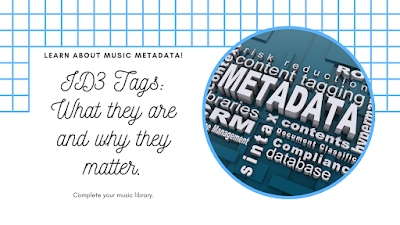Introduction:
In the digital age, music has transcended physical boundaries, seamlessly transitioning from vinyl records and CDs to digital formats. Amidst this evolution, the importance of metadata in music cannot be overstated. Metadata, the hidden information embedded within each musical track, plays a crucial role in organizing, cataloging, and enhancing the overall music listening experience. This article delves into the significance of proper and accurate metadata embedding, shedding light on the repercussions when metadata falls prey to inaccuracies.
I. Understanding Metadata in Music:
Metadata in music refers to the supplementary information that accompanies each track, encompassing details such as artist name, album title, genre, release date, and more. While these details may seem trivial, they form the backbone of music organization and accessibility in the digital realm. Properly embedded metadata ensures that listeners can easily identify, search, and categorize their favorite tracks, creating a seamless and enjoyable music library.
II. Organization and Discoverability:
Accurate metadata facilitates efficient organization and search capabilities. When a music library is well-organized with correct metadata, users can effortlessly navigate through their collection, locating specific artists, albums, or genres with ease. This, in turn, enhances the overall discoverability of music, allowing users to explore new tracks based on accurate genre classifications and artist information.
III. Streaming Services and Playlists:
In the era of streaming services, metadata plays a pivotal role in curating personalized playlists and recommendations. Services like Spotify, Apple Music, and others rely heavily on accurate metadata to suggest music that aligns with users' preferences. Incorrect metadata can lead to skewed recommendations, disrupting the user experience and potentially causing frustration.
IV. Attribution and Royalties:
For musicians and creators, accurate metadata is not just about organization but also about proper attribution and compensation. When metadata is incorrect, artists may not receive the credit they deserve, leading to issues in royalty distribution. Ensuring that each contributor is appropriately credited in the metadata ensures a fair and just compensation system within the music industry.
V. The Pitfalls of Inaccurate Metadata:
a. Misattribution: Incorrect artist or album information can result in the misattribution of a track to the wrong creator, leading to confusion and potential disputes.
b. Genre Confusion: Inaccurate genre classification hampers the ability of streaming platforms to recommend music accurately, limiting users' exposure to diverse genres.
c. Fragmented Libraries: A lack of standardized metadata can lead to fragmented music libraries, hindering interoperability between different platforms and devices.
VI. Conclusion:
In the intricate tapestry of the digital music landscape, metadata serves as the invisible thread that weaves together the elements of organization, discoverability, and proper attribution. Musicians, listeners, and industry professionals alike must recognize the importance of accurate metadata embedding to maintain the harmony of the music ecosystem. By prioritizing the integrity of this hidden information, we can ensure that the digital symphony continues to resonate with clarity and precision.


No comments:
Post a Comment
Please be so kind to leave a comment in support of this band or artist or article.